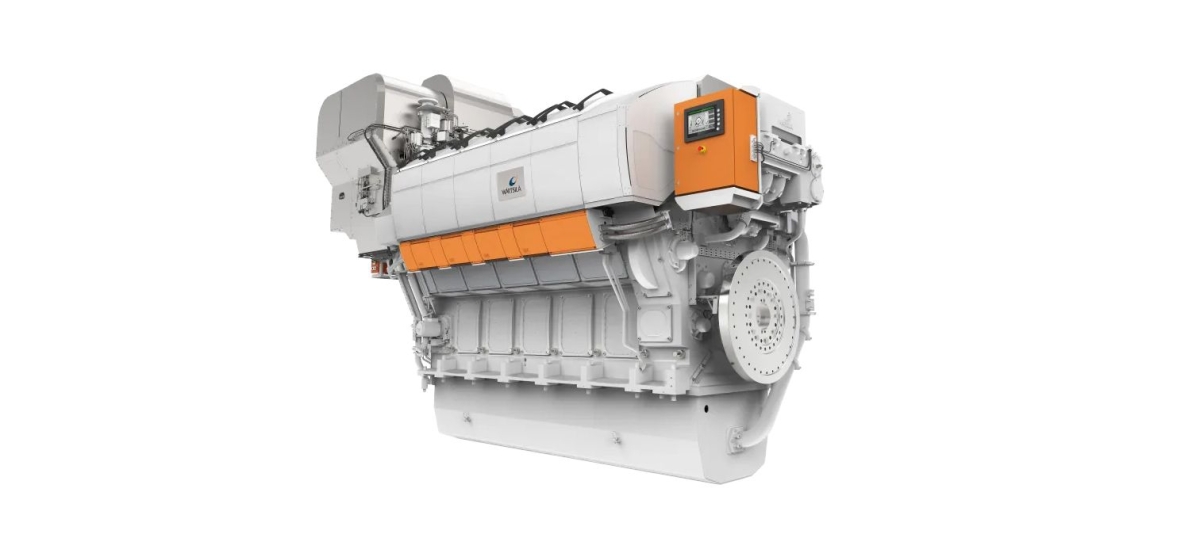
Wärtsilä Group said it has received an order from Remontowa Shipyard to supply engines, fuel storage and power systems for three ferries being built for Polish shipowners.
Wärtsilä said the contract was concluded in
January. The ferries will thus be equipped with 31DF dual-fuel
engines. The propulsion units can use LNG and bio-LNG, although the
shipowners have announced that the ferries will run exclusively with
bio-LNG from 2025. The group says that the primary driver for the
contract was the performance of the engines in question. Under the
contract, Wärtsilä is also to supply Pac's LNG fuel storage, power
and control systems.
- The Wärtsilä 31 engine represents the
latest engine technology available and this, combined with Wärtsilä's
vast experience in LNG solutions, made our choice easy - said Grzegorz
Wardzynski, technical director of Polsteam, the parent company of
Unity Line.
- Decarbonisation is a central issue for the
maritime sector and this is reflected in the choice of Wärtsilä
engines for these ferries. Optimal engine performance is key to
maximizing fuel consumption and minimizing emissions. The new vessels
will become an important part of the Polish transport infrastructure
and we are proud to be a partner in this project - said Matthias
Becker, General Manager Sales Wärtsilä Marine Power.
Polskie Promy, the company set up to fulfil the order for new vessels for
the Polska Żegluga Bałtycka and Polska Żegluga Morska, has
signed a contract with Remontowa shipyard for the delivery of three
vessels and an optional fourth. Two Ro-Paxys will go to PŻM, i.e.
Unity Line, while the third and optionally the fourth one will sail
in the colors of PŻB, i.e. Polferries.
During the conference
"Perspectives of the Polish shipbuilding industry" Mr.
Grzegorz Wardzyński, the technical director of Polska Żegluga
Morska talked about the ordered ferries in detail. According to him
they will be one of the most modern vessels sailing on the Baltic
distinguished by high maneuverability. Each of them will measure 200
meters with 4100 meters of loading line, which is a standard for
bigger ferries.
Wardzyński compared the ferries ordered for
PŻB and PŻM with the units produced for TT Line. The Polish ferries
will have 24 MW of power, while TT Line's ferries will have 36 MW,
which is much more power than is needed for the routes and conditions
on the Baltic Sea. Wardzynski said the ferries were planned "with
full consideration of minimum operating costs".
- There are no
main or auxiliary engines on our ferries, there is only one power
plant. There are four gensets based on Wärtsilä dual-fuel engines,
the most modern Wärtsilä 10V31DF currently on the market. These
engines run on LNG with a pilot dose of light fuel, after the 25th
year they will be able to easily switch to Bio-LNG, which has no
greenhouse effect. Adding 20 percent Bio-LNG to LNG reduces CO2
emissions by 40 percent, - said Wardzyński.
The construction
of the ferry has been planned so that the propulsion system can
gradually evolve towards a zero-emission propulsion system - ammonia,
hydrogen or ethanol.
- At 200 meters long and 32 meters wide,
the ferries will have the most convenient cargo line width. On
average it is 3100 centimeters, in the case of Polish ferries it will
be 3200. - Drivers will definitely not be breaking mirrors on these ferries
- commented Wardzyński.


